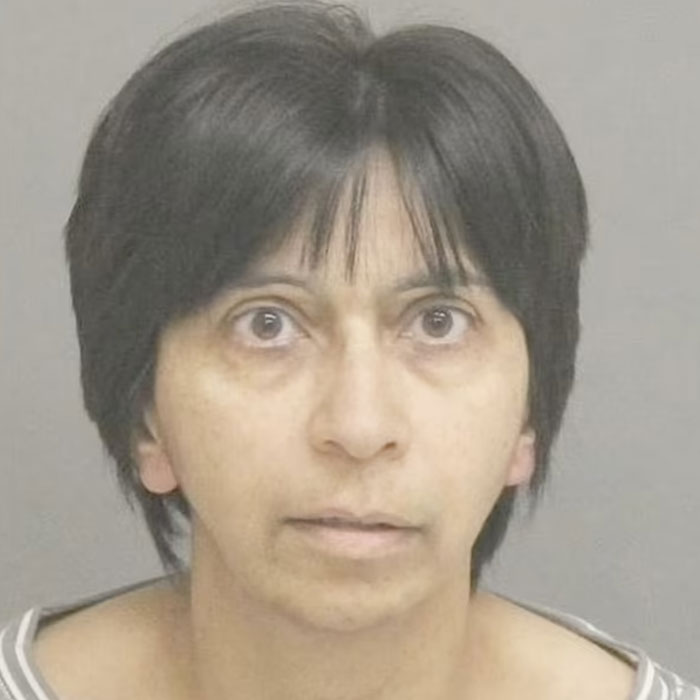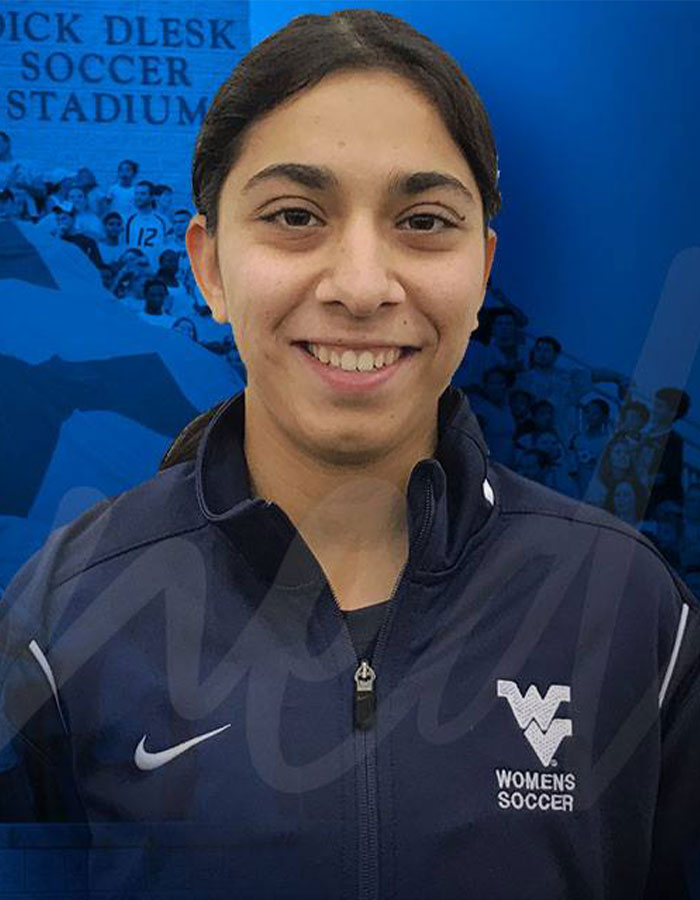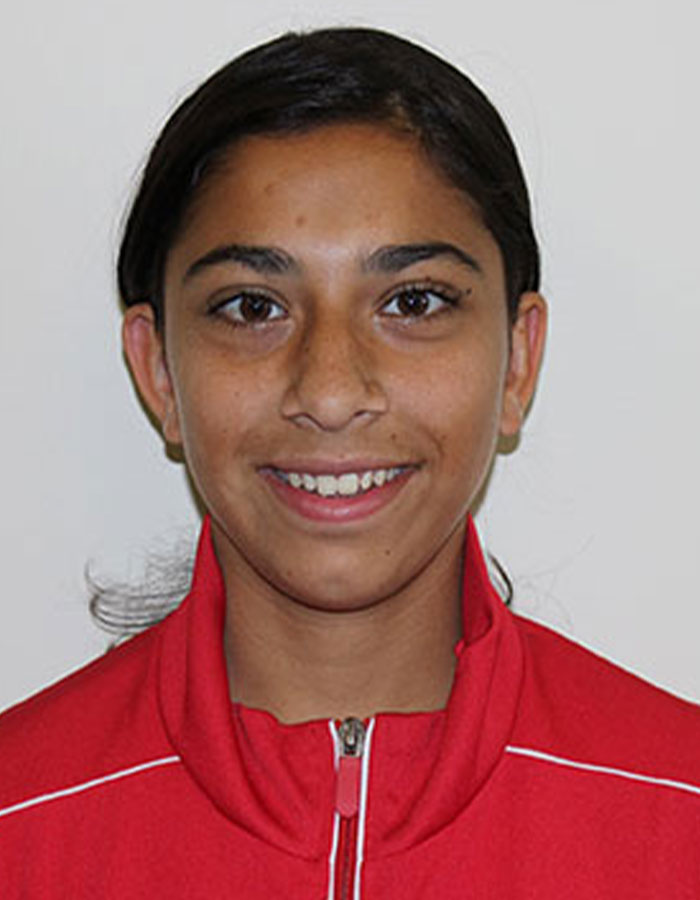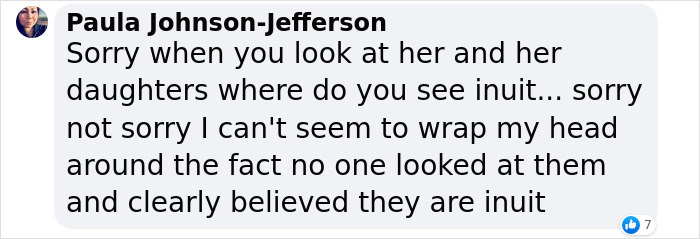A woman received a three-year prison sentence for claiming her daughters wereborn to an Inuit womanin a first-of-its-kind ‘Pretendian‘ case—falsely claiming Indigenous identity—inCanada.
In a landmark case,Karima Manjireceived her sentence after admitting to defrauding Inuit organizations of over $158,000.
Her plot, which sent shockwaves through the community, involved falsifying hertwin daughters‘ identities to gain access to benefits reserved for Inuit beneficiaries.
Karima Manji was sentenced to three years in prison in a first-of-its-kind “Pretendian” case in Canada

Image credits:TPS
The Toronto resident falsely filled out forms that claimed her daughters, Amira and Nadya Gill, were Inuit children she had adopted.
Karima claimed they were born to an Inuit woman, Kitty Noah, so that they could benefit from the Nunavut land claim through Nunavut Tunngavik Inc. (NTI).
Initially, the guilty-pleading mother’s scheme worked, as the sisters received more than $158,000 total from two different organizations.
Twins Amira and Nadya not only won scholarships but also received grants earmarked for Inuit business ventures. They ran an online business selling COVID face marks and labeled it an Inuit-owned enterprise.
“This is an egregious example of the exploitation ofIndigenous Peoples,” said Nunavut Justice Mia Manocchio, the judge who sentenced Manji.
“Ms. Manji’s case must serve as a signal to any future Indigenous pretender that the false appropriation of Indigenous identity in a criminal context will draw a significant penalty,” the judge added.
The guilty-pleading woman claimed her daughters, Amira and Nadya Gill, were the biological daughters of an Inuit woman so that they would be eligible for grants and scholarships

Image credits:Facebook
Karima returned $130,000 of the money and is expected to pay back the rest of the amount as well. Her case is the first-of-its-kind “Pretendian” case in Canada.
“Pretendian” is a term used to describe individuals who falsely claim Indigenous identity to gain benefits or status associated with being part of an Indigenous community.
This deceit often involves fabricating or exaggerating connections to Indigenous heritage to access scholarships, grants, employment opportunities, and social privileges intended for genuine Indigenous people.
The term has gained prominence as more cases of identity fraud emerge, highlighting the harmful impacts on Indigenous communities who suffer from the dilution of their cultural integrity and the misallocation of resources meant to support their advancement.
“There are suddenly many more grants and benefits to identifying as Indigenous,”saidKim TallBear, professor of Native studies at the University of Alberta.
“It’s a problem because non-Indigenous people are simply unqualified, for the most part, to figure out who is Indigenous and how they belong to a community or not.”

Image credits:Canadasoccer
This identity fraud is harmful because it exploits narratives of historical violence and dispossession, creating insecurity and confusion among genuinely affected Indigenous individuals.
Scammers often misleadingly equate their false claims with the real experiences of those who have suffered from assimilationist policies, which TallBear describes as cynical and self-serving.
Fraudsters“will actually conflate their situation with the situation of the scooped and disconnected,” TallBear added. “It’s actually quite cynical and self-serving.”
NTI said the Amira and Nadya case was the first of its kind, and they defended their “robust” process of reviewing applications.
They made “each decision carefully, after reviewing relevant supporting evidence of eligibility,” the organization said.
She also said NTI “is not the true or ultimate victim … the true victim[s] of Ms Manji’s crime are the Inuit of Nunavut.”
While people saw the sentence as a fitting one, they believed the damage caused to the community was deeper
Noah, Kitty’s biological son, said he was “surprised” and “pleased” with the three-year sentence that was handed over to Karima.
“I didn’t think she would get anything longer than two years less a day, so I’m very pleased with the outcome,” he toldCBC.
However, he noted that it does not take away the pain.
“I just feel better, knowing that it’s a message sent to anyone that’s trying to defraud Indigenous, Inuit, First Nations. It’s a good day,” he added.
Karima’s lawyer, Scott Cowan, told the outlet that the sentence given to his client was “much higher than most similarly situated people.”
“The unique factors in this case led the judge to make this anexemplary sentence,” he said. “The only answer, based on the totality of the judgement, is that it was to make an example.”
Aluki Kotierk, NTI’s president, was also pleased with the sentence. But she said there are more concerns among the people of the community.
“I know that there’s been a lot of focus on the financial gains of this person and her daughters, but I think the concerns as a community, as Inuit, that we have, is that having an NTI card does not make us Inuk,” Aluki told the outlet. “Being an Inuk is based on our culture, our kinship, our community, our language.”
“It’s terrible, because it creates a suspicion,” she said.
She noted that the NTI has made some changes to their enrolment process and that out-of-territory residents and families will have to fill out additional paperwork for an NTI card.
Anne Crawford, a longtime Iqaluit lawyer, also said the case of the twin daughters is something they will have to talk about “as a country.”
“I think it’s something we’re going to have to start to talk about as a country. Inuit have a very distinct identity and we have very distinct processes in Nunavut for identifying Indigenous or Inuit citizens,” she said.
“The rest of Canada, it’s not always that clear,” she added.
Netizens applaud Karima Manji’s conviction






 You May LikePeople Think Crashed Delta Flight In Toronto Should Have Been CanceledKarina BabenokTitan Sub’s Eerie Last Moments Exposed In Newly Released Audio: “A Disaster Waiting To Happen"Lei RVPassengers Upset After Plane Makes Emergency Landing Due To “Serious Medical” Crisis On BoardKarina Babenok
You May LikePeople Think Crashed Delta Flight In Toronto Should Have Been CanceledKarina BabenokTitan Sub’s Eerie Last Moments Exposed In Newly Released Audio: “A Disaster Waiting To Happen"Lei RVPassengers Upset After Plane Makes Emergency Landing Due To “Serious Medical” Crisis On BoardKarina Babenok
Karina Babenok
Lei RV
News